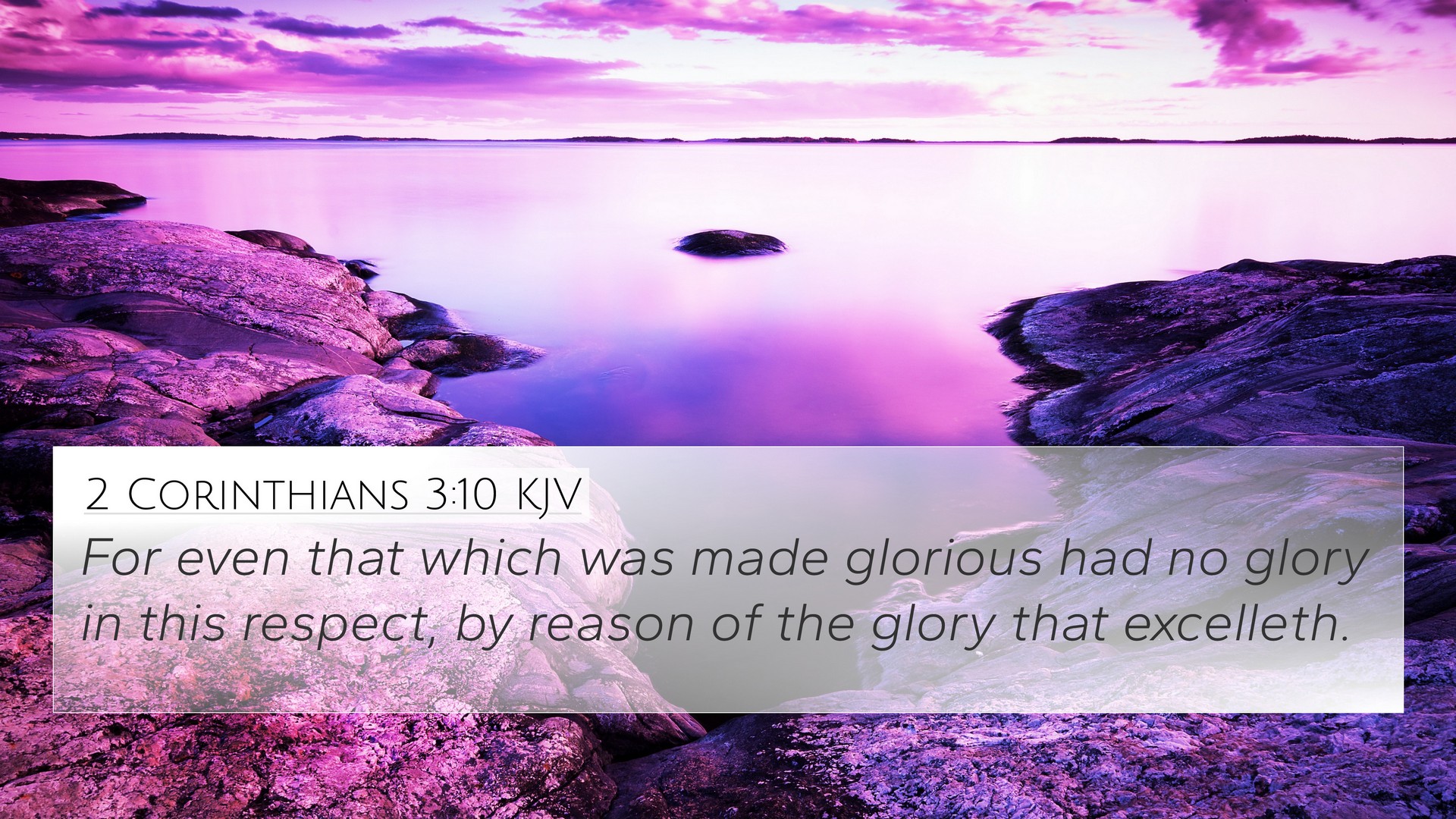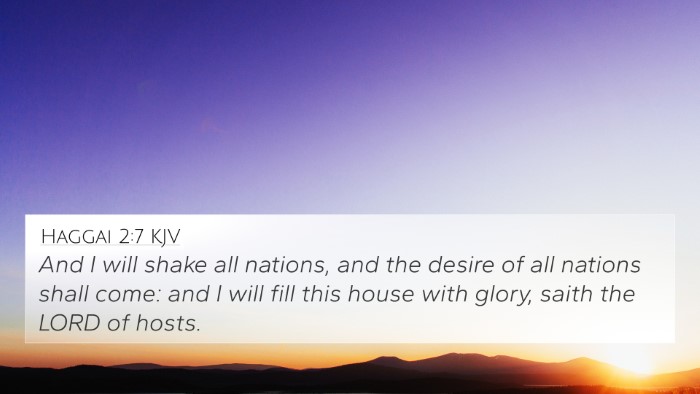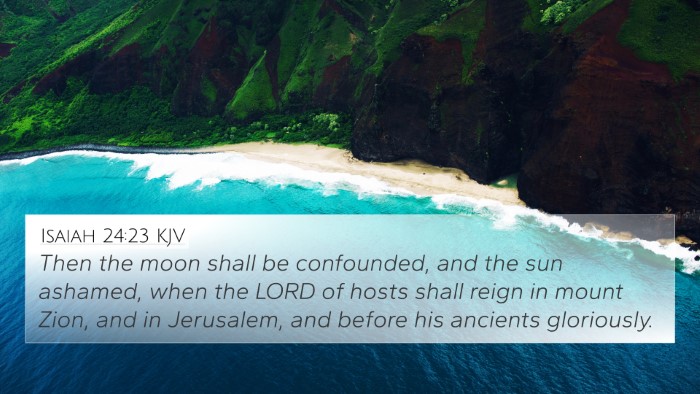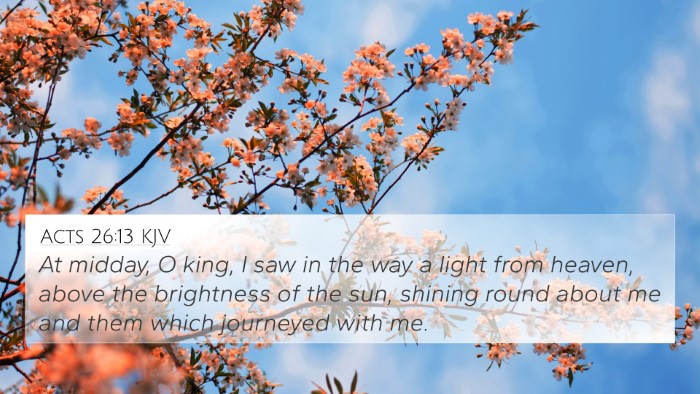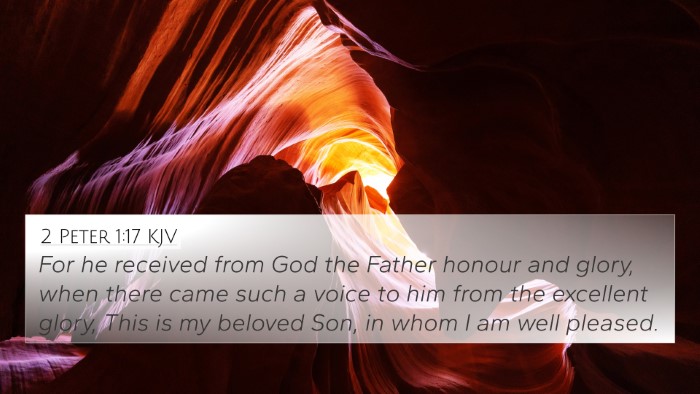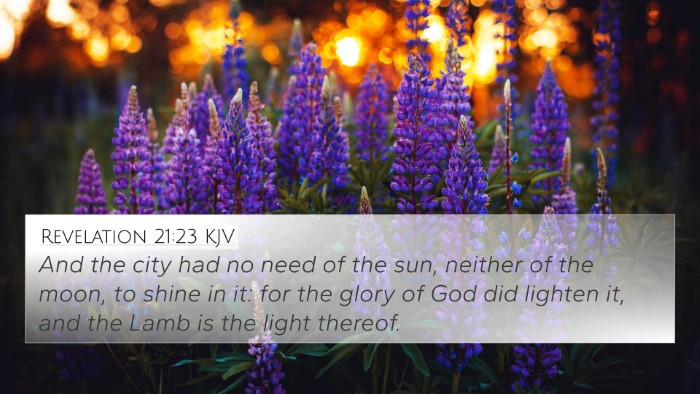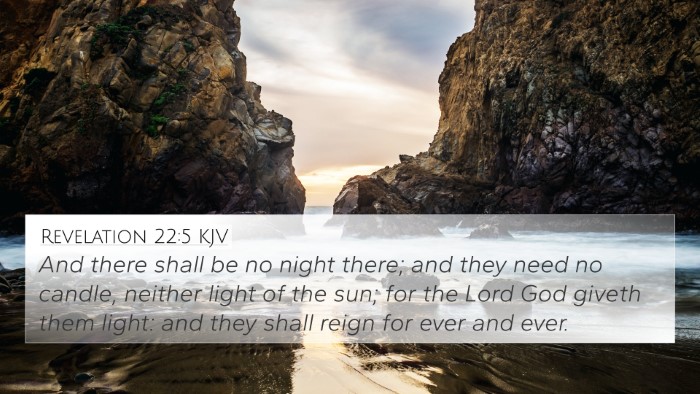Understanding 2 Corinthians 3:10
The Apostle Paul’s discourse in 2 Corinthians 3:10 encapsulates his teachings regarding the superiority of the New Covenant over the Old Covenant. This verse reads: “For even that which was made glorious had no glory in this respect, by reason of the glory that excelleth.” In this profound statement, Paul elucidates a significant truth about the transition from the law to grace.
Summary of the Verse Meaning
Paul introduces a comparative analysis between the Old and New Covenants, highlighting that the glory of the Old Covenant, represented by the Law given to Moses, pales in comparison to the surpassing glory of the New Covenant established through Jesus Christ. The apostle aims to emphasize the transformative power of the New Covenant, as it brings believers into a deeper relationship with God, free from the constraints of the Law.
Insights from Public Domain Commentaries
-
Matthew Henry's Commentary:
Henry emphasizes the idea that while the glory of the Old Covenant was evident, it lacked the full revelation of God’s grace which is found in Christ. He notes the transient nature of the Law, contrasting it with the eternal and unchanging grace offered through the New Covenant.
-
Albert Barnes' Notes:
Barnes elaborates on the "glory" of the Old Covenant, explaining how it was inherent but not complete. The insignificance when placed against the glory of Christ is underscored, showcasing how the New Covenant fulfills and surpasses the purpose of the Old, offering salvation and a personal relationship with God.
-
Adam Clarke's Commentary:
Clarke aims to delineate the difference between the glory that was associated with the Law and the exceeding glory found in the Gospel. He suggests that the introduction of grace is the critical element that enhances the believer's experience of divine glory, thus making the Old Covenant's glory seem fleeting.
Bible Cross References
This verse relates to various other scriptures that further explore its themes. Below are significant Bible cross-references:
- Exodus 34:29-35 - Details the glory of Moses' face after encountering God.
- Romans 8:1-2 - Explains the freedom from condemnation found in Christ.
- Hebrews 8:6-7 - Discusses the superiority of the New Covenant over the Old.
- 2 Corinthians 4:17 - Highlights the eternal weight of glory in contrast to momentary affliction.
- Galatians 3:24-25 - Remarks on the Law as a tutor leading to Christ.
- John 1:17 - States that grace and truth came through Jesus Christ.
- Colossians 1:27 - Mentions the mystery of Christ in believers, which is a profound aspect of the New Covenant.
Thematic Connections and Interpretations
The connections drawn from 2 Corinthians 3:10 can be understood through various thematic lenses. The notion of comparing covenants is central to Christian theology and is echoed throughout the New Testament, wherein Pauline epistles frequently revisit these themes.
- Transformation: The journey from the old covenant of the law to the new covenant of grace signifies a transformational experience for believers.
- Grace vs. Law: This juxtaposition emphasizes that Christians are not bound by the rigidities of the law but are led by the Spirit of grace.
- Glory Revealed: The surpassing glory of the New Covenant represents a revelation of God’s character, as seen in the life and ministry of Jesus.
Conclusion
In summary, 2 Corinthians 3:10 serves as a pivotal verse that articulates the transition from the Old Covenant to the New, stressing the overwhelming nature of divine grace and the glory that believers now experience through their relationship with Christ. It provides a necessary contemplation for anyone studying the connections between various Bible verses and the thematic implications of covenant theology.
Additional Study Tools
To deepen your understanding of cross-referencing biblical texts, consider utilizing the following resources:
- Bible concordance
- Bible cross-reference guide
- Cross-reference Bible study
- Bible reference resources
